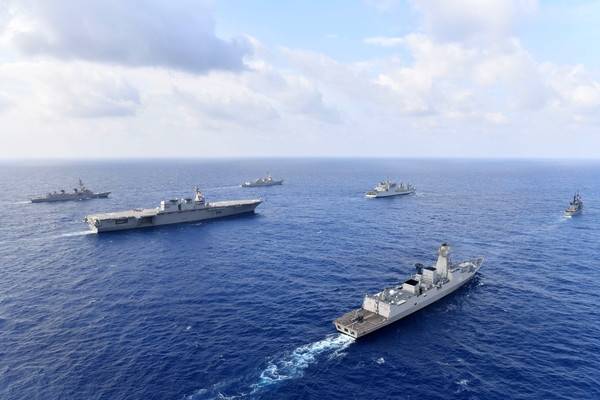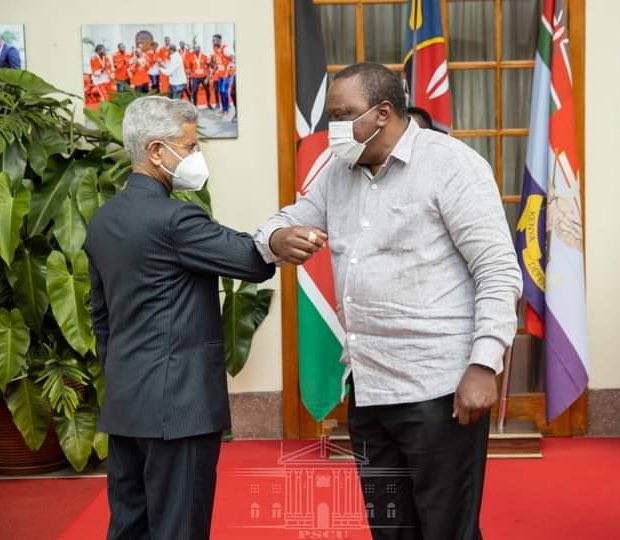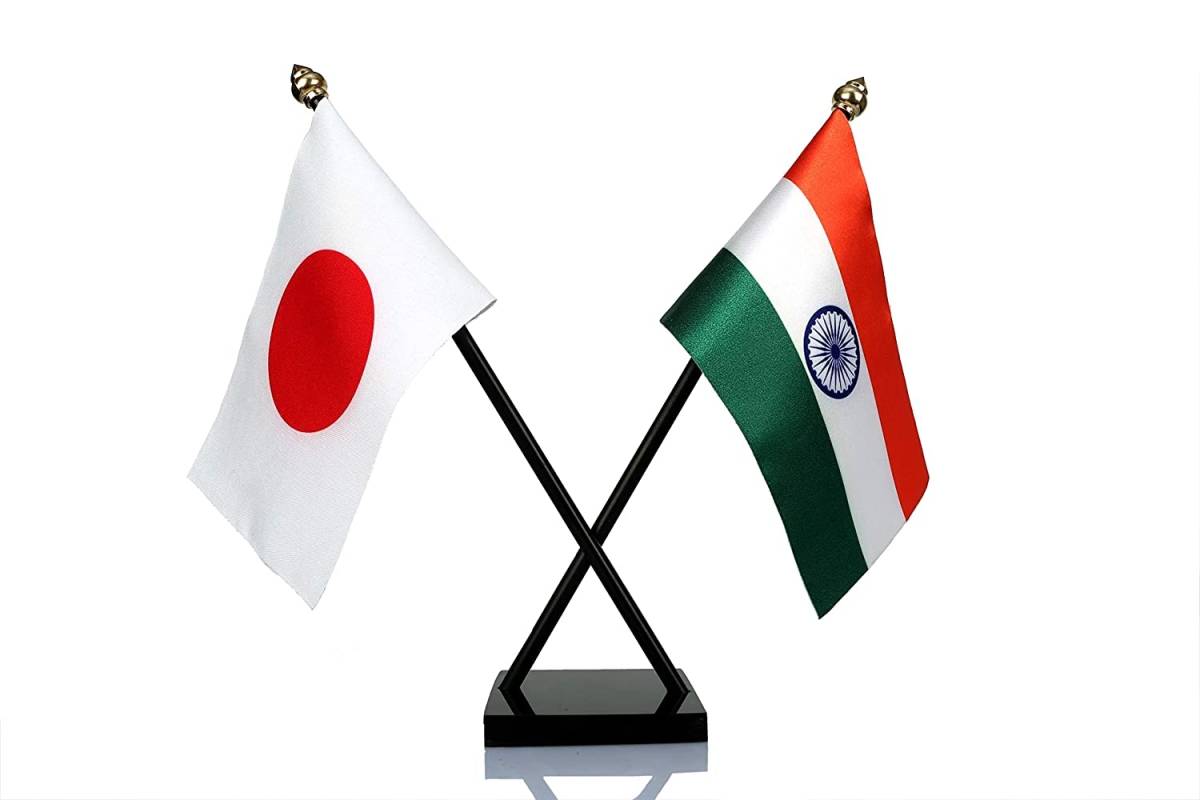Kenya’s geographic location, political stability and economic dynamism enables it to play the role of the gateway between Africa and the Indo-pacific, writes Sankalp Gurjar
There are two primary geographic imaginations of the Western periphery of the Indo-Pacific region. The area as imagined by Australia (and until recently, by America), ends at the Western coast of India. As per this visualisation, this region is defined as the one stretching from Bollywood (located in Mumbai) to Hollywood (located in Los Angeles on the Western Coast of America).
The second definition championed by India and Japan includes the Eastern African seaboard as an inalienable part of the Indo-Pacific construct. In fact, in 2016, Japan launched its Indo-Pacific strategy, known as “Free and Open Indo-Pacific”, in Nairobi in Kenya. In 2018, when India outlined its vision for the region, Eastern and Southern African littoral was included as part of the Indo-Pacific.
For India, Kenya being a littoral state and a maritime neighbour located on the Eastern African seaboard, it is important to understand its approach towards the Indo-Pacific. Three recent developments help us to comprehend Kenya’s view of the Indo-Pacific: the remarks by Kenya’s Chief Administrative Secretary for Foreign Affairs, Ababu Namwamba, at the Bled Strategic Forum; remarks Kenya’s President at the United Nations Security Council debate on maritime security and India-Kenya joint statement.

At the Bled Strategic Forum, held in September 2021, Kenya’s Chief Administrative Secretary for Foreign Affairs, Ababu Namwamba explained his country’s approach towards the Indo-Pacific region. He divided the region into three sub-regions: Eastern, Central, and Western. He argued that Kenya is located in the Western Indo-Pacific and has three key concerns: Militarization, especially of the Red Sea, Piracy and Transnational Crimes, and finally, Oceanic Pollution. Each of these concerns presents challenges as well as opportunities for littoral states.
Kenya is positioning itself as a gateway between Africa and the Indo-Pacific. Kenya’s geographic location, political stability and economic dynamism enables it to play the role of the gateway. Namwamba observed that Kenya is interested in engaging with the Regional Comprehensive Economic Partnership (RCEP) as a platform that would be useful in bringing prosperity.
As the Indo-Pacific is primarily a maritime region, maritime security has emerged as a key focal point for debates about the Indo-Pacific region. In August, at the behest of India, UN Security Council discussed the issue of maritime security. It was the first time that such a holistic debate took place on maritime security. Kenya is a non-permanent member of the UNSC and President Uhuru Kenyatta delivered remarks at the debate.
Kenya links Africa and the Indian Ocean, and therefore, Kenyatta noted that Kenya’s “wealth and security rely on the building of sound trade and security linkages between these two regions.” However, Kenya is worried about the threat posed by terrorism in its neighbourhood of East Africa and the Horn of Africa. Moreover, for Kenya, “piracy and other sea-based crimes, including attacks on vessels and illicit trafficking of persons, firearms and narcotics, remain a concern.”

He observed that “competition for influence in the Red Sea region, particularly by extra-regional Powers, has intensified over the years.” Kenyatta said that threats to maritime security arise from “land-based situations.” Moreover, he “encouraged more thinking and innovation in developing and launching fair-trade regimes in areas such as the Indian Ocean rim.” Kenyatta underscored the need “to build robust coast guard capacities” and stressed “the threat of climate change to the existence of some small island States.”
For Kenya, the immediate maritime periphery and the extended region from the Red Sea to the Mozambique Channel matters in its Indo-Pacific security calculations. The concerns it has expressed, such as extra-regional military presence and maritime piracy, are primarily important in the context of this broader region. Therefore, it is clear that Kenyatta’s concerns about maritime security and the views expressed by Chief Administrative Secretary on the Indo-Pacific cover more or less similar points. Their emphasis on economic prosperity and trade is noteworthy as well.
The third relevant development was the India-Kenya joint statement issued after the visit of External Affairs Minister S Jaishankar in June. The statement alluded to the Indian Ocean and Indo-Pacific. The joint statement noted that, India and Kenya are “maritime neighbours” and that both countries “recognized the importance of ensuring through shared endeavours greater security, safety and prosperity of the Indian Ocean Region.” Furthermore, they also “held extensive exchanges on global and regional issues including the security situation in the Indo-Pacific region and the Horn of Africa.”
East African littoral is attaining greater strategic importance as a theatre in its own right as well as a vital sub-region in the Indo-Pacific. Regional security and geopolitics are undergoing changes due to the strategic rivalries between the extra-regional players. Therefore, an important littoral state like Kenya is voicing its concerns, articulating its priorities and by doing so, hopes to influence the debates about the region and to place itself in an advantageous position.
Kenya understands the necessity of building the coast guard and security capabilities for tackling threats like terrorism and maritime piracy. It is also interested in drawing economic benefits by engaging with key Indo-Pacific powers through RCEP or otherwise. It has managed to build resilient ties with China on the one hand and America, Britain and Japan on the other. The balancing between major powers is a normal strategy for smaller yet strategically important states. Kenya is no exception to this.
For India, Kenya is a key partner in East Africa and in the Western Indian Ocean region. With Kenya demonstrating greater interest, India could perhaps engage Kenya in an Indo-Pacific framework.
(Sankalp Gurjar is a Research Fellow with the Indian Council of World Affairs, New Delhi. This is a revised version of the original article by the author that appeared at the Indian Council of World Affairs website. Read the original article here. Views expressed are personal)
(The content is being carried under an arrangement with indianarrative.com)

Leave a Reply